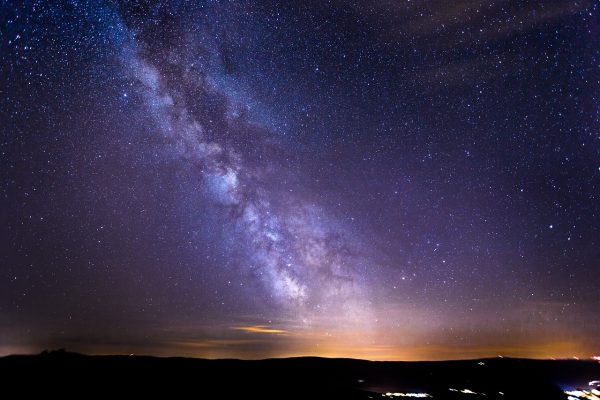We will offer our silent Amidah prayers in a few moments, but I invite you now to turn your attention to the last two words of the very first line of Modah Ani, I thank You; typically, the first prayer we say upon waking to assist us in opening our hearts in gratitude:
מוֹדֶה אֲנִי לְפָנֶיךָ רוּחַ חַי וְקַיָּם שֶהֶחֱזַרְתָּ בִּי נִשְׁמָתִי בְחֶמְלָה, רַבָּה אֱמוּנָתֶךָ
Modah ani lifanecha ruach chai v’kayam shehechezarta bi nishmati v’chemla rabah emunatecha.
I thank You Spirit of Life, for the soul You have placed in me, and for Your great faith in me/in all of us. Rabah emunatecha.
Please join me in this simple chant before I move forwards with a teaching: רַבָּה אֱמוּנָתֶךָ Rabah Emunatecha 3x
Consider, just as God has great faith in us, rabbah emunatecha, we must cultivate faith in one another as a community, we must be supportive, hold sacred space for each other, lift each other up in prayer, whether chanted, spoken or offered in silence. At this time, many of us are filled with anxiety and sadness- the world, as we know it, planet Earth is on fire! Truly, we are facing an existential crisis. As we know, politics have seeded division and confusion between and among us; neighbors, friends, even families. These are collective sorrows, and anxieties we are experiencing, layered on top of whatever personal losses, worries, disappointments and grief we are feeling. Even so, this is Rosh Hashanah, the start of a New Year; a time for celebration, in which we offer our gratitude and lift up our hope for an abundant, sweet, fruitful, peaceful future that we shall build together. Therefore, we hold this tension in our hearts, in our bodies, in our minds; we feel this tension between comfort and discomfort knocking us off balance, while our souls, remain a direct line connecting us to the Divine, to Shekhinah; God’s ever abiding Presence, anchoring us to hope, renewing our faith. Friends, we are in this time of change and uncertainty together as a sacred community, kehillah kedosha, accompanied by Shekhinah, the Holy Blessed Presence.
I want to point out that the word emunah, faith, or emunatecha in this case, Your faith, God’s faith in us, shares the same Hebrew root as the word Amen. Amen is the way we respond to each other’s prayers. Strong’s Concordance defines the Hebrew word Amen as “so be it,” or “truth.” When we say amen, it is our acknowledgement that we believe/support/have faith in the intentions and expressions offered by one another in prayer.
Emunatecha, God’s faith in us, is a compassionate acknowledgment reminding us that HaShem sees us, just as we are, moment to unfolding moment. In the word Emunatecha we can hear the voice of Divinity telling us, “Anochi, I, the Source of All, recognize you, in your own truth, as it is arising right now. I see you not just in your beauty, not just when you do everything right, but also in your mistakes, in your awkwardness, shallowness, ugliness, in your imperfections, in your sorrow, fear, anger, brokenness, AND, emunatecha, I, believe in you nonetheless, no matter what.”
Hashem believes in our ability to co-create a world worthy of Divine inspiration, worthy of the very souls, the neshamot that God placed in us. We are all acceptable in the heart of the Holy Blessed One, in every moment. Why? Because, no matter how far off we may have strayed; the Source of Life knows we will make t’shuvah; we will always, always return to a path of goodness, of righteousness, of healing, just as it is true that the breath returns to us until our final exhale. God believes in us because human beings were created to carry on the work of Creation. This is a great responsibility, not to be taken lightly. It is up to us to work towards that expectation of t’shuvah. We are here, each of us, all of us, to leave this world better than it was when we arrived. Rabah emunatecha, Adonai believes in us, Adonai knows us, Adonai created us. Adonai has great faith in us.
When we are feeling overwhelmed by grief and anxiety, another active practice we can employ, in addition to prayer, is Hakarat Hatov, looking for goodness. This helps to awaken gratitude, which is very much tied to yirah, awe, perhaps the best way to balance out the more difficult feelings we are all too familiar with. In his book “Who Is Man?” Rabbi Abraham Joshua Heschel wrote the following:
Awe is more than an emotion; it is a way of understanding, insight into a meaning greater than ourselves. The beginning of awe is wonder, and the beginning of wisdom is awe.
Rabbi Heschel continues:
Awe is an intuition for the dignity of all things, a realization that things not only are what they are but also stand, however remotely, for something supreme. Awe is a sense for transcendence, for the reference everywhere to mystery beyond all things. It enables us to perceive in the world intimations of the divine, to sense in small things the beginning of infinite significance, to sense the ultimate in the common and the simple: to feel in the rush of the passing, the stillness of the eternal. What we cannot comprehend by analysis, we become aware of in awe. Ch. 5. – Who Is Man? (1965)
With this teaching from Rabbi Heschel in heart and mind, we can understand awe as a powerful spiritual counter balance to the weight of fear, sorrow, anxiety, and grief. Let’s pause for a moment, before we offer our own individual Amidah prayers in silence, to remember any recent moments of awe we have experienced, perhaps on a walk or hike in nature, or maybe being awed by a tender moment with a loved one, or listening to music that touched your soul. Close your eyes or lower and soften your gaze. Inhale deeply. Exhale slowly, fully, completely. Breathing naturally now, allow yourself to be transported. Recall what your body felt like in that moment of awe.
Now, if you are able, rise in body, or remain seated and rise in spirit, take three steps back, or lean back in your chair; in reverence, to the Holy One.
Yih’yu l’ratzon imrei-fi v’hegyon libi
l’fanecha Adonai tzuri v’goali.
We ask that the meditations of our hearts, the words upon our lips, may also be acceptable.
Take three steps forward, or lean forwards, bend your knees if standing, and all of us can bow, gesturing with our whole bodies, that we are prepared to offer our prayers with respect for the Holy One of All Being.
Continue with your prayers in silence.












